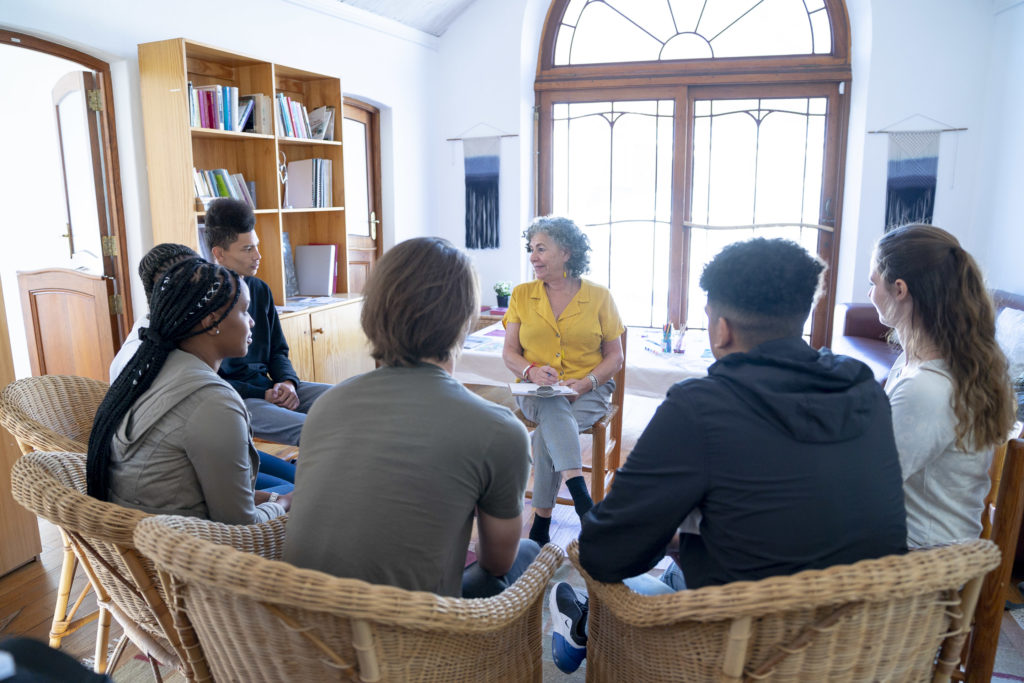Mental Health wellness is a huge concern right now, especially since lockdown has caused loss of jobs, retrenchments and business closures. COVID-19 has not just brought challenges to physical health and economic security; it is wreaking havoc with our general sense of well-being, exposing the fault-lines in our emotional resilience and our abilities to properly tend to our mental health.
South Africa has a very low response capacity but a huge demand for mental healthcare, especially for those in disadvantaged communities. The Counselling Hub in Woodstock has been a saviour to many since they offered R50 sessions last year. With many not being able to afford R50 right now, they’ve had to reimagine their offering to accommodate those in need. This includes tele-counselling, with them making the call and absorbing the data cost.
The Counselling Hub is an initiative of the SACAP Foundation, a non-profit organisation working towards providing accessible affordable mental health services, and the KK Educational Fund (KKEF). While sessions at The Counselling Hub were already highly affordable, there is a new demand for even more affordable services as many clients have lost their source of income.
“Our model previously was to offer professional services at the affordable rate of R50 per session, but we needed to innovate here too as clients lost their sources of income. In some cases, the only way to ensure continuity of treatment has been for our counsellors to make the calls. We have thus transformed to being donation-based through our website. At this time of crisis, the importance of The Counselling Hub’s work has been widely recognised and we are deeply grateful to the volunteer counsellors who have come on board and enabled us to actually grow our reach in Cape Town’s vulnerable communities,” adds Kaplan.
Now The Hub provides over 110 patients with innovative tele-counselling, delivered by 30 volunteers and continues to play an essential role in facilitating referrals for specific mental health services.
Many have had to confront substance abuse issues without any support. There was no escape from dysfunctional, even violent dynamics in many family relationships. Help has been hard to come by when the country’s fragile healthcare resources have all been acutely focused on mitigating the threats of the novel coronavirus.
“The crisis fired up our entrepreneurial spirit,” says Romi Kaplan, co-founder of the Counselling Hub. “We were determined not to separate our clients from their counsellors at such a stressful time, and so we managed to pivot, from the very first week of lockdown, to a tele-counselling service. The first week of March we had to call all the clients to inform them that we had to suspend face-to-face sessions and would be instilling an alternative to provide sessions to them via telephone and virtual platforms. It was important to work with our counsellors, to get their agreement and also ensure they were comfortable with working in this new way,” says Kaplan.
The team at The Counselling hub have devised a system where counsellors are able to recharge using airtime and data supplied to them. All calls to the main office were diverted to a cellphone at the founders’ homes and staff received training to ensure they were able to provide the same level of counselling via the new tele-counselling format.
Many lessons are being learned during the global pandemic and the team at The Counselling Hub feels the critical need for sound mental healthcare to withstand hardships.
Sometimes, all it takes is a helping hand, or a listening ear, to wake us up to our potential to not just get through the tough times, but to achieve a greater level of self-knowledge and learn life skills that change us for the better. Sometimes that access to mental health care is simply about survival.
You can support the Counselling Hub as it continues to deliver mental health care services during COVID-19 at https://counsellinghub.org.za/donate/
Picture: Supplied

